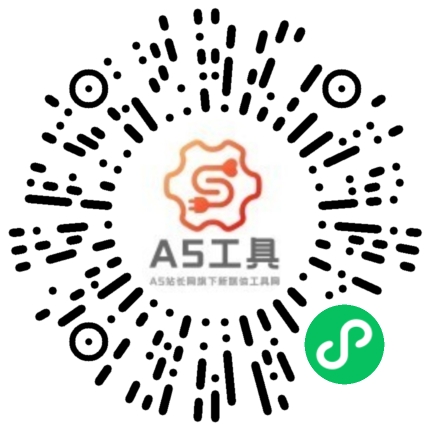"Voice Cloning: Translating奇迹into English, Unveiling Tech's Complex Allure"
2025-04-25 14:20
**The Enthralling Realm of Voice Cloning: How Do We Translate This Marvel into English?**
In an era where technology transcends the boundaries of imagination, the concept of voice cloning has emerged as a fascination that captures the collective mind. But have you ever paused to wonder how this mesmerizing phenomenon translates into English? Is it merely a case of finding the right words, or does the translation itself carry a layer of intrigue, mirroring the complexity of the technology itself?
To delve into this question, let's first consider the essence of voice cloning. At its core, this technology replicates the unique timbre, pitch, and inflections of an individual's voice, creating an uncanny semblance that often leaves listeners in awe. In English, the phrase that most aptly captures this wonder is "voice cloning," a term that, despite its simplicity, encapsulates the profound implications of this groundbreaking innovation.
Now, imagine the impact of this technology on various fields. From entertainment, where actors' voices can be immortalized for future projects, to law enforcement, where cloned voices might aid in criminal investigations, the applications are vast and transformative. But how does the English language, with its rich tapestry of vocabulary, convey the intricacies of this process?
One might argue that "voice mimicry" or "vocal replication" could serve as alternatives. However, these terms, while close, lack the precision and allure of "voice cloning." "Cloning," with its scientific connotations, suggests a replication so exact that it borders on the biological—a metaphor that resonates deeply in our tech-savvy society.
Statistics back up this fascination. A recent study revealed that interest in voice cloning technologies has surged by over 300% in the past five years, with a particular spike in fields like AI and digital media. This surge isn't just a reflection of curiosity; it's a testament to the potential these technologies hold for revolutionizing communication and creativity.
Moreover, consider the ethical implications. As voice cloning becomes more sophisticated, questions arise about consent, identity theft, and the very essence of what makes a voice unique. In English, discussing these issues requires a nuanced vocabulary that balances technical accuracy with philosophical depth. Terms like "biometric authentication" and "digital identity theft" enter the conversation, enriching our understanding of the technology's dual-edged sword.
So, as we ponder the translation of "voice cloning" into English, we're not just grappling with words; we're engaging with the broader implications of this technology. It's a journey that invites us to question, to explore, and to marvel at the ever-evolving frontier of human ingenuity.
In conclusion, the English phrase "voice cloning" stands as a testament to our ability to encapsulate complex ideas in concise, powerful terms. As we continue to navigate this fascinating landscape, let us remain curious, engaged, and ever-vigilant to the possibilities—and challenges—that lie ahead.
In an era where technology transcends the boundaries of imagination, the concept of voice cloning has emerged as a fascination that captures the collective mind. But have you ever paused to wonder how this mesmerizing phenomenon translates into English? Is it merely a case of finding the right words, or does the translation itself carry a layer of intrigue, mirroring the complexity of the technology itself?
To delve into this question, let's first consider the essence of voice cloning. At its core, this technology replicates the unique timbre, pitch, and inflections of an individual's voice, creating an uncanny semblance that often leaves listeners in awe. In English, the phrase that most aptly captures this wonder is "voice cloning," a term that, despite its simplicity, encapsulates the profound implications of this groundbreaking innovation.
Now, imagine the impact of this technology on various fields. From entertainment, where actors' voices can be immortalized for future projects, to law enforcement, where cloned voices might aid in criminal investigations, the applications are vast and transformative. But how does the English language, with its rich tapestry of vocabulary, convey the intricacies of this process?
One might argue that "voice mimicry" or "vocal replication" could serve as alternatives. However, these terms, while close, lack the precision and allure of "voice cloning." "Cloning," with its scientific connotations, suggests a replication so exact that it borders on the biological—a metaphor that resonates deeply in our tech-savvy society.
Statistics back up this fascination. A recent study revealed that interest in voice cloning technologies has surged by over 300% in the past five years, with a particular spike in fields like AI and digital media. This surge isn't just a reflection of curiosity; it's a testament to the potential these technologies hold for revolutionizing communication and creativity.
Moreover, consider the ethical implications. As voice cloning becomes more sophisticated, questions arise about consent, identity theft, and the very essence of what makes a voice unique. In English, discussing these issues requires a nuanced vocabulary that balances technical accuracy with philosophical depth. Terms like "biometric authentication" and "digital identity theft" enter the conversation, enriching our understanding of the technology's dual-edged sword.
So, as we ponder the translation of "voice cloning" into English, we're not just grappling with words; we're engaging with the broader implications of this technology. It's a journey that invites us to question, to explore, and to marvel at the ever-evolving frontier of human ingenuity.
In conclusion, the English phrase "voice cloning" stands as a testament to our ability to encapsulate complex ideas in concise, powerful terms. As we continue to navigate this fascinating landscape, let us remain curious, engaged, and ever-vigilant to the possibilities—and challenges—that lie ahead.
这篇关于《"Voice Cloning: Translating奇迹into English, Unveiling Tech's Complex Allure"》的文章就介绍到这了,更多新媒体运营相关内容请浏览A5工具以前的文章或继续浏览下面的相关文章,望大家以后多多支持A5工具 - 全媒体工具网!
相关资讯
查看更多
声音克隆新体验:在线看刘德华克隆声,科技让偶像“声”临其境
**探索声音克隆新纪元:在线观看刘德华声音克隆视频,感受科技魅力**
在数字化浪潮席卷全球的今天,你是否曾幻想过与偶像进行一场跨越时空的对话?或者,你是否好奇,当尖端科技遇上天籁之音,会碰撞出怎样的...

声音克隆APP:探索声音魅力,破解版风险大,正版才是正道!
**声音克隆APP破解版最新版:探索声音魅力的双刃剑**
在科技日新月异的今天,声音克隆技术已经不再是遥不可及的科幻概念,而是切实地走进了我们的日常生活。各类声音克隆APP如雨后春笋般涌现,为用户提...

魔音工坊:声音克隆技术,让电影配音与创作从此变得简单!
### 魔音工坊:让声音克隆不再是科幻梦想?
在科技日新月异的今天,你是否曾幻想过能够克隆他人的声音,为自己的创作增添一抹独特的魅力?或者,你是否好奇,那些电影中的配音是如何做到如此逼真,仿佛角色本...

苹果克隆声开启智能交互新纪元,未来生活更“声”动!
**苹果克隆自己的声音:开启智能交互新时代?**
在科技日新月异的今天,苹果公司的一项创新技术引发了广泛关注——克隆自己的声音。这听起来像是科幻电影中的桥段,却真实地成为了现实。那么,苹果为何要克隆...

手机AI克隆声音:声音复制新时代,便利与风险并存的奇幻之旅
**手机AI克隆声音:一场声音复制的奇幻之旅**
在这个日新月异的数字时代,科技的力量总能以超乎想象的方式刷新我们的认知。你是否曾幻想过,只需一部手机,就能克隆出他人的声音,仿佛拥有了声音的“复制粘...

声音克隆软件哪家强?探索三款精品,复刻你的独特声线!
**探索声音克隆新纪元:哪款软件能完美复刻你的声线?**
在数字化时代,技术的飞速发展正以前所未有的方式重塑我们的生活方式。你是否曾幻想过,自己的声音能被精准捕捉并克隆,用于创作、娱乐或是日常交流?...

高科技克隆声音:开启个性化语音时代,未来已来,你准备好了吗?
**高科技克隆声音:解锁个性化语音的新篇章**
在科技日新月异的今天,你是否曾幻想过拥有与偶像一模一样的声音,或是让你的声音跨越时空,以不同的风格、情感传递信息?这一切,随着高科技克隆声音技术的飞速...

豆包平台“声音克隆”新体验:一键复制,开启你的声音奇幻之旅
**如何在豆包里“克隆”你的声音:一场声音复制的奇幻之旅**
在数字时代,科技的边界不断被拓宽,我们的想象力也随之跳跃。你是否曾幻想过,在豆包(这里寓意一个充满创意与惊喜的数字平台)这样的趣味空间里...





